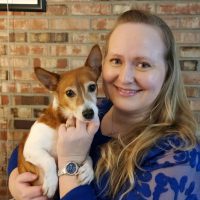New York University’s Wild Animal Welfare Program will host “How Can People Increase Our Interactions with Wild Animals at Scale?”—a roundtable dialogue showcasing professionals in the fields of animal and environmental scientific tests, philosophy, and sociology—on Fri., Jan. 27, 5-6:30 p.m. EST.
To RSVP for this virtual and in-person occasion, to be held at NYU’s Jurow Lecture Corridor in the Silver Middle for Arts and Science (31 Washington Area [at Washington Square East]), please check out the party site. For extra information, remember to connect with 212.992.7997.
The dialogue, which will involve a query-and-respond to session with the viewers, arrives at a time when humans’ engagement with wild animals, this kind of as mountain lion P-22 in southern California and Lake Tahoe bear “Hank the Tank,” is drawing scrutiny. It will take into account the subsequent: Why does wild animal welfare subject extra than at any time? What are the most urgent and actionable difficulties confronting wild animals? and How does wild animal welfare relate to conservation biology and other fields?
The event’s speakers will include things like: Becca Franks, an assistant professor of environmental reports at NYU, co-director of the Wild Animal Welfare System, and an associate editor for the Proceedings of the Royal Culture B: Organic Sciences Jeff Sebo, a scientific associate professor of environmental research at NYU, co-director of the Wild Animal Welfare System, and creator of Conserving Animals, Preserving Ourselves (2022) Christine Webb, a lecturer and publish-doctoral researcher in Harvard University’s Division of Human Evolutionary Biology Colin Jerolmack, a professor of sociology, chair of NYU’s Division of Environmental Studies, and author of The World Pigeon (2013) and Dale Jamieson, professor emeritus of philosophy and environmental scientific tests at NYU, director of the Heart for Environmental and Animal Protection at NYU, and author of Dim Time: Why the Wrestle to End Local weather Improve Failed—And What It Suggests for Our Future (2014).
Subway Traces: 6 (Astor Area) R, W (8th Road).
Editor’s Note:
NYU’s Wild Animal Welfare Method, which conducts analysis and hosts activities that take a look at the effect of human exercise and environmental alter on the perfectly-being of wild animals, was recognized in 2022 and is housed in the university’s Environmental Reports Department. For far more data, remember to visit its website.
